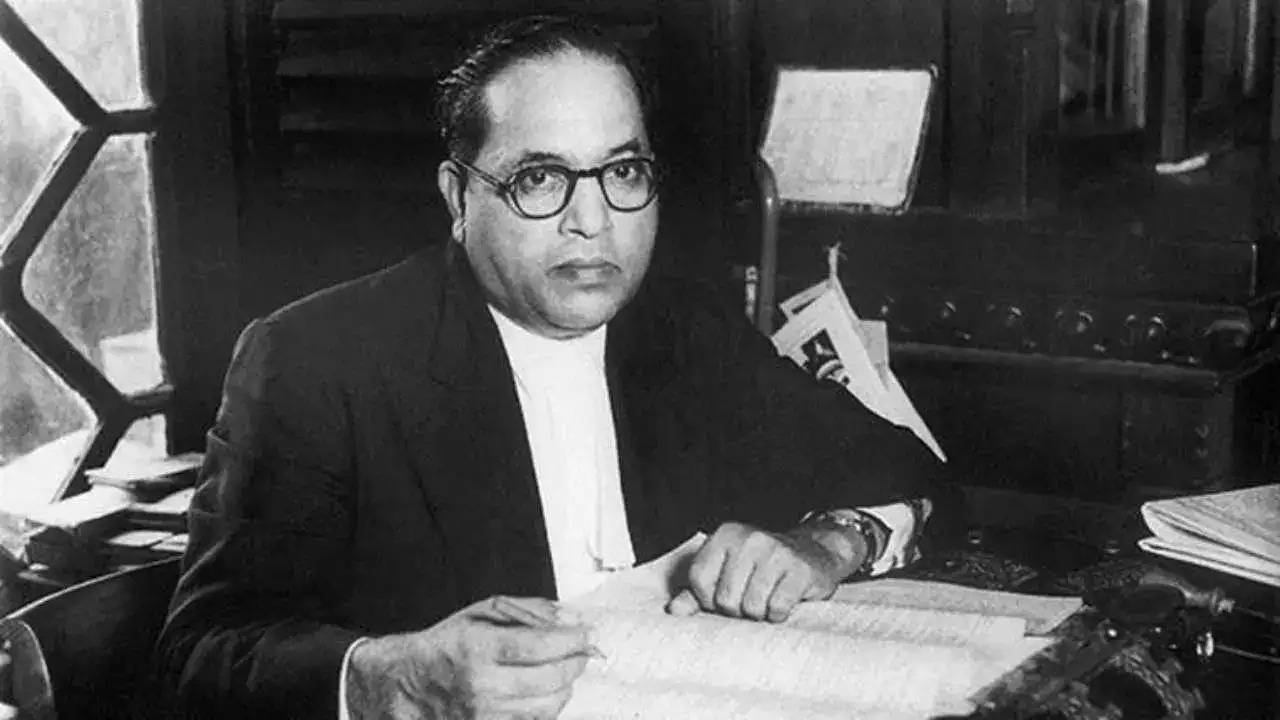Dr. B. R. Ambedkar: Architect of Social Justice
 |
| Image Courtesy - Times of India |
Dr. Bhimrao Ramji Ambedkar, fondly known as Babasaheb, was a visionary leader, jurist, and social reformer who played a pivotal role in shaping the socio-political landscape of India. Born on April 14, 1891, in Mhow, Madhya Pradesh, Dr. Ambedkar rose from a background of social discrimination to become the chief architect of the Indian Constitution. His life's work was dedicated to fighting against caste-based discrimination, and untouchability, and advocating for social justice, equality, and the rights of the marginalized.
Early Life and Education:
Ambedkar's early life was marked by caste-based oppression as he belonged to the "untouchable" Mahar caste. Despite facing immense social discrimination, he excelled academically, earning degrees in economics and law from the University of Bombay. His pursuit of education took him to the United States and the United Kingdom, where he earned advanced degrees from Columbia University and the London School of Economics.
Fight Against Social Discrimination:
Upon returning to India, Ambedkar became a prominent voice against social injustice. He vehemently opposed the caste system and untouchability, advocating for the rights and dignity of the Dalits, the lowest caste in the Hindu social hierarchy. Ambedkar led various social movements, including the Mahad Satyagraha for Dalits' right to access public water tanks, and the Temple Entry Movement, which sought to open Hindu temples to Dalits.
Drafting the Indian Constitution:
Dr. Ambedkar's most significant contribution came during the framing of the Indian Constitution. Appointed as the Chairman of the Drafting Committee, he played a crucial role in shaping the principles and values that form the bedrock of the Indian democracy. The Constitution of India, adopted on January 26, 1950, reflects his commitment to social justice, equality, and fundamental rights for all citizens.
Legal Luminary and Statesman:
Besides his role in drafting the constitution, Dr. Ambedkar served as the first Law Minister of independent India. He played a pivotal role in establishing the country's legal framework, emphasizing the importance of a just and egalitarian society. His contributions include the Hindu Code Bill, which sought to reform and codify Hindu personal laws, and the establishment of the Reserve Bank of India.
Legacy and Impact:
Dr. B. R. Ambedkar's legacy extends far beyond the legal and political spheres. His teachings and philosophy continue to inspire movements for social justice and empowerment. The celebration of Ambedkar Jayanti on April 14th each year honors his contributions and serves as a reminder of the ongoing struggle for equality and justice in India.
Some Life-Changing Quotes by Dr. B. R. Ambedkar
"Cultivation of mind should be the ultimate aim of human existence."
"I like the religion that teaches liberty, equality, and fraternity."
"The only way to bring about social equality is to make the Scheduled Castes financially, educationally, and politically more powerful."
"I measure the progress of a community by the degree of progress which women have achieved."
"I do not want that our loyalty as Indians should be in the slightest way affected by any competitive loyalty whether that loyalty arises out of our religion, out of our culture, or out of our language."
"We are Indians, firstly and lastly."
"I am the maker of the Constitution. People gave me the credit for it, but I did not do it alone. It was done by all the members of the Constituent Assembly."
"Political tyranny is nothing compared to the social tyranny and a reformer who defies society is a more courageous man than a politician who defies Government."
"Educate, agitate, organize."
"Freedom of mind is the real freedom. A person whose mind is not free though he may not be in chains, is a slave, not a free man."
"Life should be great rather than long."
"Law and order are the medicine of the body politic and when the body politic gets sick, medicine must be administered."
"I measure the progress of a community by the degree of progress which women have achieved."
"I want all people to be Indians first, Indian last and nothing else but Indians."
"Unlike a drop of water which loses its identity when it joins the ocean, man does not lose his being in the society in which he lives. Man's life is independent. He is born not for the development of the society alone, but for the development of his self."
Dr. B. R. Ambedkar's life and work exemplify the triumph of intellect, resilience, and determination over social adversity. His unwavering commitment to social justice, coupled with his role in drafting the Indian Constitution, makes him a towering figure in the history of modern India. As the nation continues its journey toward inclusivity and equality, Babasaheb's ideals remain a guiding light, inspiring generations to strive for a more just and compassionate society.


Comments